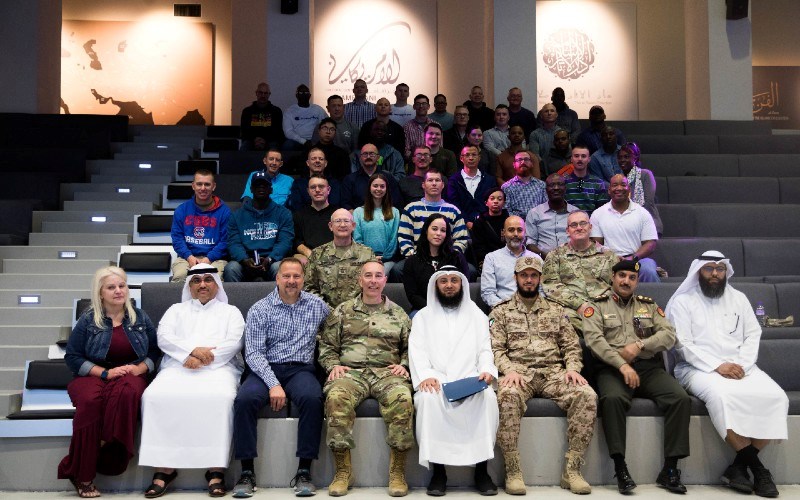One year ago, Secretary of Defense Lloyd Austin directed all military commands to focus on rooting out extremism in the ranks. Lt. General (Ret.) Jerry Boykin, who's now with Family Research Council, has argued the real agenda behind that directive is not so much to weed out extremism – but to weed out "Christian extremists."
Evidently, though, the U.S. military finds extremists of another faith perfectly acceptable – and their influence a training asset.
The U.S. Department of Defense recently reported that on November 17, 2021, more than 40 U.S. Army chaplains and religious affairs specialists deployed to Kuwait participated in "cultural awareness training" that centered around Islam. As part of the training, the soldiers toured the Grand Mosque in Kuwait City to fulfill a “day of cultural immersion” while also gaining a “better understanding of Islam.”
Helping them gain that understanding was Khateeb Mohammed Al-Naqwi, the Islamic preacher for the Islamic Affairs and Moral Guidance Center at the Grand Mosque, who shared “a basic primer on Islam to the soldiers.”
Adam Smith, a writer for Islamist Watch, says “nobody involved seemed to realize who Salafi cleric Al-Naqwi is, nor who any of his affiliations are.”

Smith tells American Family News about a May 2021 video published on YouTube that “pieces together verses from the Qur'an to justify [Al-Naqwi’s] view on ‘Israeli Terrorism.’” According to Smith, the video uses religious verses superimposed over footage of violent conflict in Gaza.
“Al-Naqwi's text [in the video] suggests that the children of Israel work to cause corruption, [and as a result] their homes should be ravaged by ‘servants of great might,’” he explains.
In another video, Smith says, Al-Naqwi warns that “Muslims cannot celebrate Thanksgiving as it is proof of kufr (unbelief).”
The Islamist Watch writer points out that while such views "are typical within hardline Islamist circles,” it creates an interesting dilemma for the many Muslims who serve in the U.S. military.
“Are they now to understand that they cannot celebrate Thanksgiving without being guilty of apostasy?” he asks.
Smith shares that some of Al-Naqwi's affiliates share the same radical sentiment.
“Ismail Menk, a Zimbabwean cleric who follows the austere Deobandi interpretation of Islam, which advocates for an Islamic theocracy, is one such example,” he offers – adding as proof that Menk has taught that women should be stoned to death for fornication.
“These and other controversial teachings led the governments of Singapore and Denmark to ban Menk from entering their borders,” Smith adds.
Who's next after Al-Naqwi?
Smith says while the training at the Grand Mosque might have been conducted with good intentions, it clearly reveals a dangerous flaw.
“What could have been an excellent and thoughtful initiative – allowing American soldiers to better understand the culture in which they are operating – has instead illustrated the perils of improper vetting and raises questions regarding DoD officials' decision-making,” Smith argues.
What’s more, he adds, the U.S. government – by allowing the training to go forward – has legitimized another Islamist preacher as a representative voice of the Muslim world.
“If Al-Naqwi, whose extremism is so clearly documented on social media, was deemed a proper source on Islam, one must wonder how many other hardline clerics have been or will be given a minbar [a pulpit in a mosque] from which to educate American soldiers,” he says.
Smith concludes the DoD did “zero vetting” and acted rather “naïvely” in this matter of training U.S soldiers in Kuwait.
Editor's note: Islamist Watch is a project of the Middle East Forum.







